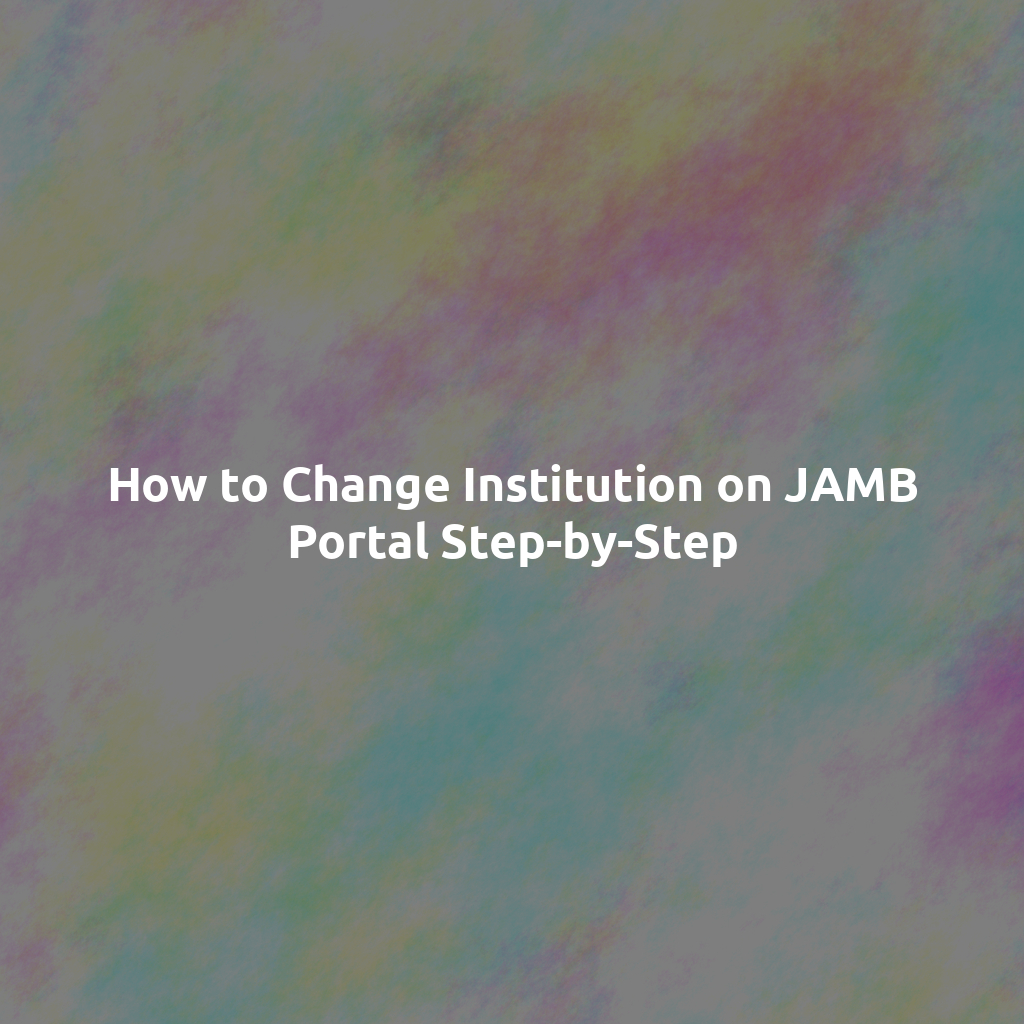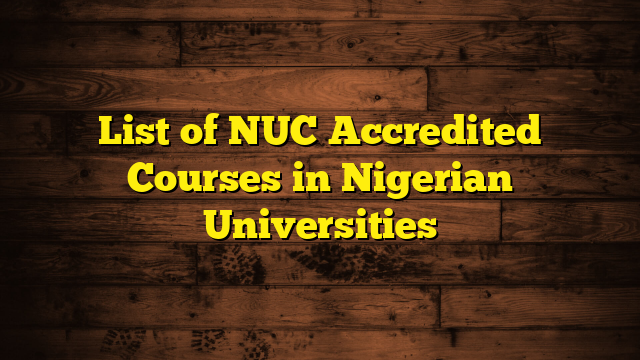Introduction to Courses That Don’t Require Mathematics in Nigeria
Many students seek courses that do not involve mathematics in Nigeria.
Different fields provide exciting opportunities for those averse to math.
Understanding these options can broaden one’s academic horizon.
Popular Courses Without Mathematics
Several popular courses offer alternatives for math-averse students.
- Mass Communication opens pathways into journalism and media.
- Psychology explores human behavior and mental processes.
- History provides insight into past events and cultures.
- Social Work focuses on community support and welfare.
Creative Arts and Humanities
The creative arts present various exciting programs without mathematics.
Advertisements
- Fine Arts encourages artistic expression and creativity.
- Theater Arts engages students in performance and drama.
- Music allows for development in performance and music theory.
- Literature enhances language skills and critical thinking.
Business and Management Courses
Certain business programs do not heavily focus on mathematics.
- Business Administration covers essential management concepts.
- Public Relations manages communication strategies effectively.
- Human Resource Management focuses on employee relations.
Career Prospects for Non-Math Courses
Graduates of these programs can find fulfilling careers.
They can work in various sectors such as media, education, and social services.
Additionally, creative fields remain ever-growing in demand.
Pursuing these courses leads to diverse job opportunities.
Overview of Educational Trends and Student Preferences in Nigeria
The educational landscape in Nigeria is dynamic and evolving.
Students increasingly seek programs that align with their interests and career goals.
As a result, many students are moving away from traditional fields that heavily rely on mathematics.
Shifting Interests in Academic Fields
Students are exploring diverse fields that offer practical skills without math prerequisites.
Popular choices include programs in the humanities, arts, and social sciences.
This shift highlights a desire for creativity and personal expression in education.
Advertisements
Humanities and Social Sciences
Courses in humanities allow students to understand society and culture.
Fields like history, literature, and sociology attract many students.
These areas do not require extensive math skills, making them more accessible.
Arts and Creative Studies
Creative programs in visual arts, performing arts, and design are also gaining traction.
Students enjoy expressing their creativity and developing unique talents.
This trend reflects a broader appreciation for artistic pursuits in society.
Practical Career Pathways
Many students prefer courses that lead directly to employment opportunities.
Vocational programs offer training in areas like hospitality and beauty care.
These programs typically involve practical skill development over theoretical knowledge.
Vocational Training
Vocational training programs prepare students for immediate work.
Fields such as culinary arts and fashion design are particularly popular.
These areas enable students to enter the job market quickly.
Business and Management Studies
Business courses attract students interested in entrepreneurship.
Management studies provide a solid foundation for careers in various industries.
Since these fields focus on practical applications, they often minimize math requirements.
Adaptation of Educational Institutions
The future of education in Nigeria will continue to evolve with student preferences.
Institutions must adapt to provide programs that fulfill these new demands.
Ultimately, a diverse educational landscape will emerge, reflecting the aspirations of younger generations.
Popular Non-Mathematics Courses in Humanities
Effective Communication and Media Studies
This area focuses on the skills needed for effective communication.
Students learn about various media forms and their impact.
They study journalism, public relations, and advertising.
Moreover, they can explore digital media and social communication.
History and Cultural Studies
History courses offer insights into past events and societies.
Students can analyze historical contexts and cultural dynamics.
Furthermore, they explore themes like colonialism and globalization.
Cultural studies provide understanding of identity and power.
Literature and Language
This discipline promotes critical thinking through literary analysis.
Students explore various genres and styles from different periods.
Language programs enhance communication skills and cultural understanding.
Additionally, students can study linguistics and language development.
Education and Teaching
This field prepares individuals for teaching and educational leadership.
Students learn about pedagogy, curriculum design, and assessment.
They may also focus on special education and inclusive practices.
Moreover, educational psychology is a key component of this course.
Philosophy and Ethics
Philosophy courses encourage deep thinking and debate.
Students engage with fundamental questions about existence and morality.
Furthermore, they can study contemporary ethical issues and theories.
Philosophical reasoning fosters clear and structured thinking.
Political Science and International Relations
This field examines political systems and global affairs.
Students analyze government structures, policies, and political behavior.
International relations courses cover diplomacy and global governance.
Additionally, students explore issues like security and human rights.
Social Work and Sociology
Social work programs prepare students for helping professions.
Students learn about human behavior, welfare policies, and community dynamics.
Sociology courses investigate social structures and cultural norms.
Moreover, students can study topics like inequality and social change.
Career Opportunities for Graduates of Non-Mathematics Courses
Exploring Diverse Fields
Graduates of non-mathematics courses can thrive in various sectors.
These fields offer numerous career paths without heavy reliance on math.
For instance, the humanities promote skills in critical thinking and communication.
Additionally, the arts foster creativity and innovation in numerous industries.
Business and Management Careers
Non-mathematics graduates excel in business management roles.
They can become effective project managers in various sectors.
Many companies value strong communication skills over mathematics proficiency.
Moreover, marketing and human resources are ideal pathways for these graduates.
Health and Social Services
Health-related fields welcome graduates from diverse academic backgrounds.
Nursing, social work, and public health offer fulfilling careers.
These professions focus on empathy, communication, and service to others.
Furthermore, there are growing opportunities in community health organization.
Education and Training
Teaching is a commendable career for those without mathematics majors.
Education provides varied opportunities in schools and training centers.
Several educational programs prioritize pedagogical skills over math expertise.
Moreover, adult education experiences are increasingly valued in the workforce.
Creative Industries
The creative sector continually seeks talent from non-mathematics backgrounds.
Roles in art, design, and media thrive on imaginative thinking.
Graphic design and content creation offer exciting job prospects.
Furthermore, fashion and film are industries driven by creativity and storytelling.
Technology and Information
Technology sectors also present opportunities for non-mathematics graduates.
Careers in information management and digital marketing are flourishing.
These roles often focus on user experience over mathematical analysis.
Additionally, software testing combines logic with communication, appealing to many.
Diverse and Rewarding Career Paths
Non-mathematics courses can lead to diverse and rewarding career paths.
Graduates should leverage their unique skills and passions.
Many industries value creativity, communication, and critical thinking above math.
Ultimately, there are endless possibilities for successful careers.
The Role of Vocational Training and Skill Acquisition
Introduction to Vocational Training
Vocational training equips individuals with practical skills.
It focuses on specific trades and professions.
This education pathway is vital in Nigeria’s job market.
Importance of Skill Acquisition
Skill acquisition empowers people to become self-reliant.
It enhances employability in various fields.
Furthermore, it helps reduce unemployment rates.
Variety of Courses Available
Several vocational courses do not require mathematics.
These programs cater to diverse interests and talents.
Some examples include beauty therapy and fashion design.
Additionally, culinary arts and carpentry are popular choices.
Market Demand for Skilled Workers
The demand for skilled workers continues to grow.
Employers seek individuals with specialized skills.
Vocational training prepares graduates for these roles.
Benefits of Pursuing Vocational Training
Vocational training offers numerous benefits.
Firstly, it provides hands-on experience.
This practical approach enhances learning outcomes.
Moreover, it often leads to immediate job opportunities.
Supporting Local Economies
Vocational programs contribute to local economies.
They help create small businesses and startups.
This, in turn, fosters economic growth within communities.
Impact of Vocational Training on Economic Development
Vocational training plays a crucial role in Nigeria.
It addresses workforce needs and individual aspirations.
Consequently, it supports overall economic development.
Alternatives in the Arts: Music, Drama, and Literature Studies
Exploring Music Studies
Music studies offer a creative outlet for students passionate about sound.
These programs include music theory, history, and performance.
Students can explore various genres, such as classical, jazz, and contemporary.
Many institutions in Nigeria offer specialized music programs.
Furthermore, students can participate in orchestras and choirs to gain practical experience.
Diving into Drama
Drama studies provide an avenue for self-expression and storytelling.
Students can engage in writing, directing, and acting.
These programs encourage collaboration and teamwork among peers.
Theatrical productions enable students to showcase their talents publicly.
Many Nigerian universities host annual drama festivals to celebrate emerging talent.
Engaging with Literature
Literature studies delve into the world of written works and storytelling.
Students analyze various texts from different cultures and periods.
This field fosters critical thinking and analytical skills.
Additionally, students explore creative writing to express their ideas.
Literature programs often feature workshops, readings, and author talks.
Benefits of Arts Studies
Studying the arts nurtures creativity and innovative thinking.
These programs develop communication and interpersonal skills.
Moreover, they foster an appreciation for diverse cultures and perspectives.
Students in the arts often engage in community outreach and cultural projects.
Finally, arts graduates find fulfilling careers in various fields, including education and media.
Benefits of Studying Courses Without Mathematics
Studying courses without mathematics opens doors for many learners.
It allows students to pursue their passions freely.
Moreover, it caters to those who struggle with math concepts.
Accessible Learning Opportunities
Students can choose from a wide variety of subjects.
Available fields include arts, humanities, and social sciences.
Additionally, numerous vocational courses do not require math.
Enhanced Focus on Practical Skills
Courses without mathematics emphasize hands-on learning.
Practical skills foster job readiness and employability.
For instance, creative courses often prioritize skill development.
Improved Academic Performance
Students may perform better when avoiding math-related stress.
Higher confidence levels translate to improved academic results.
This approach can lead to a more enjoyable learning experience.
Increased Engagement and Motivation
Learning in interest-driven fields can enhance student engagement.
Motivated students are likely to persevere in their studies.
A strong passion for a subject leads to greater involvement.
Stronger Career Prospects
Many high-demand careers don’t require advanced math skills.
Graduates can find rewarding jobs in their chosen fields.
Courses like media studies and hospitality management offer great opportunities.
Challenges Faced by Students Choosing Non-Mathematics Paths
Perception Issues
Many people view non-mathematical courses as less rigorous.
This perception can affect students’ confidence in their choices.
Moreover, peers and family may question these academic paths.
Limited Career Awareness
Some students struggle to find relevant career information.
They may lack access to mentors in non-mathematical fields.
As a result, students might feel lost regarding their future options.
Educational Resources
Institutions may not offer enough resources for these courses.
This scarcity limits students’ learning experiences.
Moreover, many may find it hard to connect with industry professionals.
Self-Doubt and Motivation
Students often face self-doubt when they see others excel in mathematics.
This can lead to decreased motivation for their chosen fields.
Support from friends and educators can help affirm their decisions.
Financial Constraints
Tuition and fees for specialized programs may be high.
Many students face financial challenges that limit their choices.
Scholarships and grants can ease the burden for some.
Job Market Competition
The job market can be competitive for graduates in non-mathematical fields.
Students may worry about job availability after graduation.
Networking and internships can enhance employability significantly.
The Future of Non-Mathematics Education in Nigeria
Shifting Educational Paradigms
Education in Nigeria is undergoing significant changes.
Institutions are recognizing diverse learning styles and preferences.
This shift allows students to pursue courses without heavy math requirements.
Emerging Course Opportunities
Many fields are seeing growth in non-mathematics programs.
Courses in humanities and social sciences are increasingly popular.
Additionally, vocational training is becoming a viable option for many.
These paths encourage creative thinking and practical skills.
Impact on Employment Prospects
The availability of non-mathematics courses enhances job readiness.
Graduates can enter various industries without math-intensive training.
Fields like communication, arts, and social work are thriving.
Employers value diverse skill sets over traditional math skills.
Challenges and Considerations
Despite progress, challenges remain in non-mathematics education.
Public perception still leans towards math-driven disciplines.
Additionally, ensuring quality in these programs is crucial.
Stakeholders must work together to enhance the reputation of non-mathematics fields.
Vision for the Future
The future of education in Nigeria looks promising.
As more students explore non-mathematics paths, innovation will flourish.
Ultimately, this diversity enriches the overall educational landscape.
Nigeria can become a hub for varied and inclusive learning experiences.






